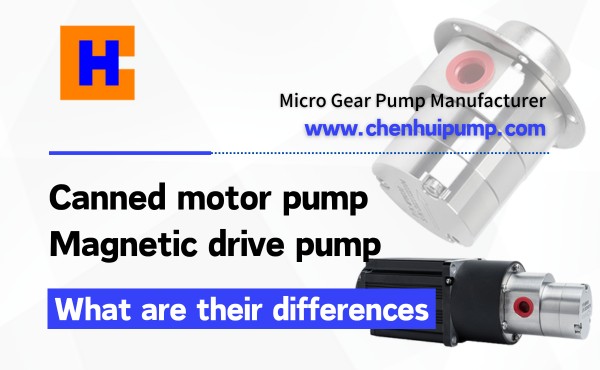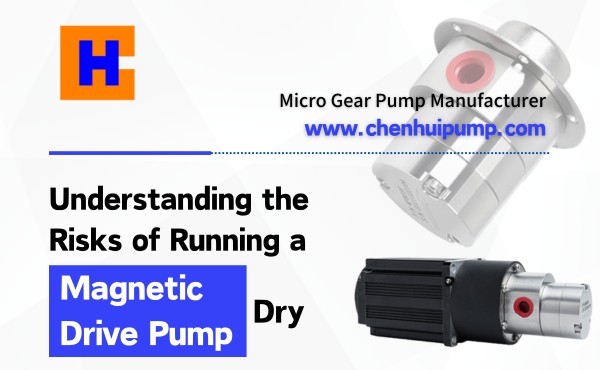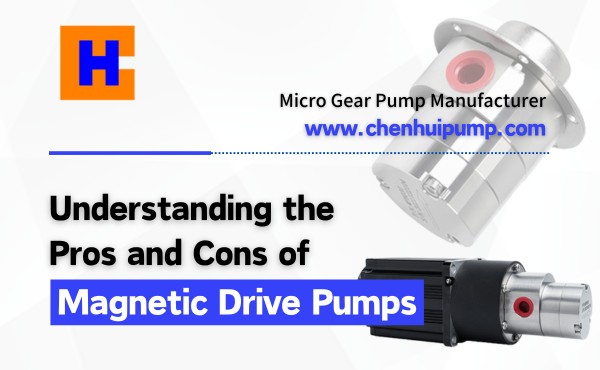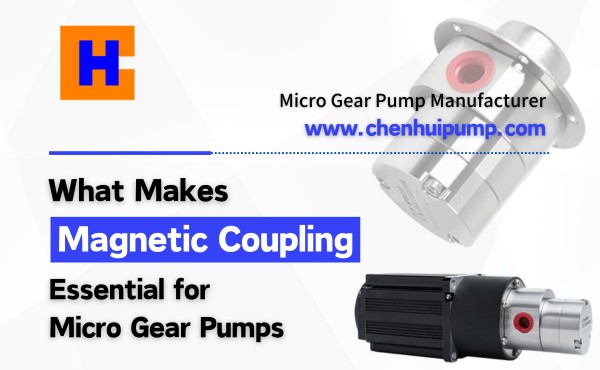Choosing the right pump for an application often requires understanding the differences between a canned motor pump and a magnetic drive pump. Each pump type offers unique features that suit specific needs. Recognizing these distinctions ensures optimal performance, safety, and efficiency in industrial or commercial operations.
Canned Motor Pump Overview
Design and Construction
A canned motor pump integrates the motor and pump into a single, compact unit. This design eliminates the need for a mechanical seal, which is a common source of leaks in traditional pumps. The motor is enclosed within a hermetically sealed casing, ensuring complete isolation from the pumped fluid. This feature enhances safety and prevents contamination.
The pump’s rotor and stator are separated by a thin, non-metallic can. This can acts as a barrier, protecting the motor components from the fluid. The absence of external couplings reduces the risk of misalignment and simplifies maintenance. Canned motor technology is particularly effective in handling hazardous or corrosive fluids due to its leak-free design.
Functionality
Canned motor pumps operate by directly transferring energy from the motor to the impeller. The motor’s rotor, located within the sealed casing, drives the impeller to move the fluid. This direct drive mechanism minimizes energy loss and improves efficiency. The pump’s design also reduces vibration and noise, making it suitable for environments where quiet operation is essential.
The absence of seals eliminates the need for regular seal replacements, reducing downtime and maintenance costs. Additionally, the hermetic sealing ensures that no fluid escapes, even under high-pressure conditions.
Applications
Canned motor pumps are widely used in industries requiring high levels of safety and reliability. Common applications include:
- Chemical processing plants handling toxic or corrosive substances.
- Nuclear power plants where leak prevention is critical.
- Refrigeration systems requiring precise fluid containment.
- Pharmaceutical manufacturing to maintain sterile conditions.
These pumps are ideal for environments where fluid containment and operational safety are top priorities.
Magnetic Drive Pump Overview
Design and Construction
A magnetic drive pump uses a unique design that eliminates the need for a mechanical seal. It features two sets of magnets: one attached to the motor shaft and the other connected to the impeller. These magnets create a magnetic coupling, allowing the motor to drive the impeller without direct contact. This design ensures a completely sealed system, preventing fluid leakage.
The pump’s casing is typically made from corrosion-resistant materials, making it suitable for handling aggressive chemicals. The absence of a mechanical seal reduces wear and tear, enhancing the pump’s durability. Additionally, the compact design simplifies installation in tight spaces.
Functionality
The magnetic drive pump operates by transferring torque from the motor to the impeller through the magnetic coupling. When the motor rotates, the outer magnet spins, causing the inner magnet and impeller to rotate as well. This mechanism eliminates the need for a traditional shaft seal, reducing maintenance requirements.
This pump type is highly efficient in transferring fluids without contamination. It also minimizes energy loss during operation. The sealed design ensures safe handling of hazardous or volatile liquids, making it a reliable choice for sensitive applications.
Applications
Magnetic drive pumps are widely used in industries requiring leak-free operation. Common applications include:
- Chemical processing for transferring corrosive or toxic fluids.
- Oil and gas industries for handling volatile substances.
- Food and beverage production to maintain hygiene standards.
- Water treatment plants for precise fluid management.
These pumps excel in environments where safety, efficiency, and reliability are critical.
Key Differences Between Canned Motor Pumps and Magnetic Drive Pumps
Drive Mechanism
The drive mechanism is a fundamental difference between these two pump types. A canned motor pump uses a direct drive system where the motor and impeller are integrated into a single unit. This design eliminates the need for external couplings, reducing energy loss. In contrast, a magnetic drive pump relies on a magnetic coupling to transfer torque from the motor to the impeller. This indirect mechanism allows for a completely sealed system but may result in slight efficiency losses due to magnetic resistance.
Sealing and Leak Prevention
Sealing is a critical factor in pump selection. Canned motor pumps feature a hermetically sealed design, ensuring zero leakage. This makes them ideal for handling hazardous or corrosive fluids. Magnetic drive pumps also offer a sealless design, but their reliance on magnetic couplings can sometimes lead to minor wear over time. Both options excel in leak prevention, but sealless canned motor pumps provide superior long-term reliability.
Size and Space Requirements
Canned motor pumps are compact due to their integrated design. This makes them suitable for installations with limited space. Magnetic drive pumps, while also compact, may require additional room for the magnetic coupling assembly. The choice depends on the specific spatial constraints of the application.
Fluid Containment and Safety
Both pump types prioritize fluid containment. However, the hermetic sealing of canned motor pumps offers unmatched safety for handling toxic or volatile substances. Magnetic drive pumps also perform well in this regard but may not match the containment capabilities of their canned counterparts in extreme conditions.
Operating Point and Efficiency
Canned motor pumps typically operate with higher efficiency due to their direct drive mechanism. They minimize energy loss and maintain consistent performance. Magnetic drive pumps, while efficient, may experience slight losses due to the magnetic coupling. The operating point of each pump should align with the specific requirements of the application to ensure optimal performance.
Choosing the Right Pump for Your Needs
Factors to Consider
Selecting the right pump involves evaluating several critical factors. First, consider the type of fluid being handled. Fluids that are corrosive, toxic, or volatile require pumps with robust containment features, such as canned motor or magnetic drive designs. Next, assess the operating conditions, including temperature, pressure, and flow rate. These parameters determine the pump’s compatibility with the application.
Another important factor is maintenance requirements. Canned motor pumps eliminate the need for seal replacements, while magnetic drive pumps reduce wear and tear through their sealless design. Space availability also plays a role. Compact options like canned motor pumps are ideal for tight installations. Lastly, consider the total cost of ownership, including initial investment, energy consumption, and long-term maintenance expenses.
Application-Specific Recommendations
Different industries have unique requirements that influence pump selection. For chemical processing, both canned motor and magnetic drive pumps excel in handling hazardous fluids. However, canned motor pumps offer superior leak prevention for highly toxic substances. In the oil and gas sector, magnetic drive pumps are often preferred for their ability to handle volatile liquids safely.
For applications requiring quiet operation, such as pharmaceutical or food production, both pump types perform well. Canned motor pumps may be better suited for sterile environments due to their hermetic sealing. In water treatment plants, magnetic drive pumps provide reliable performance for managing aggressive chemicals. Matching the pump’s features to the specific application ensures optimal results.
Conclusion
Understanding the differences between canned motor pumps and magnetic drive pumps helps users make informed decisions. Canned motor pumps excel in leak prevention and compact design, while magnetic drive pumps offer durability and chemical resistance. Application-specific factors like fluid type and operating conditions should guide the selection process. Choosing the right pump ensures safety and efficiency.
CHENHUI is your trusted manufacturer for high quality magnetic drive micro gear pumps. Contact us now for your custom needs!





















